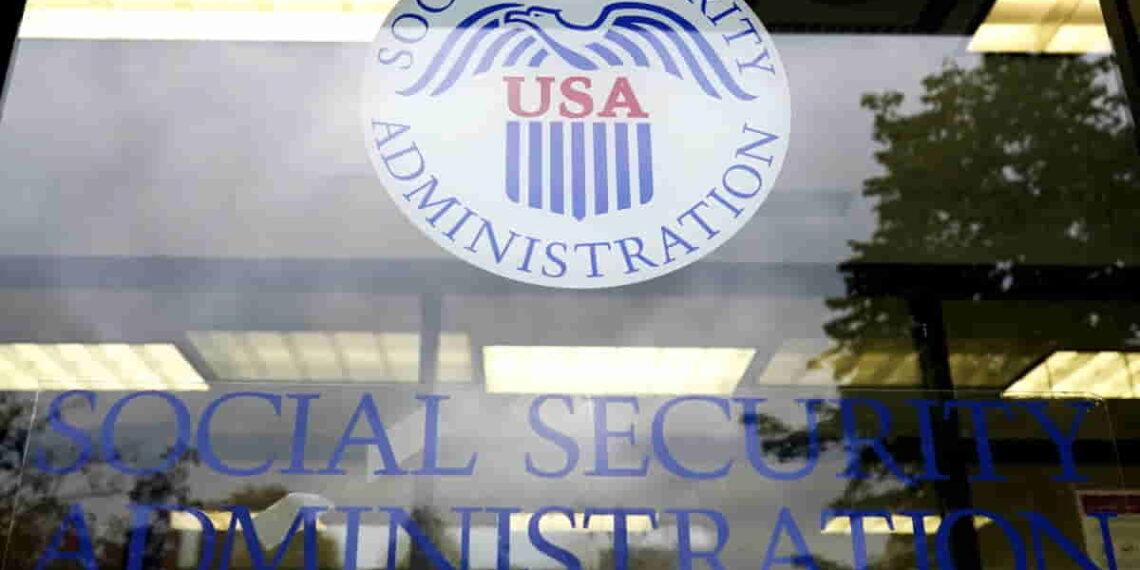Higher Social Security Payments Coming for Millions with New Bill Signed by Biden
President Joe Biden signed a historic bill into law on Sunday, set to increase Social Security payments for nearly 3 million individuals who worked in public service roles, including teachers, firefighters, police officers, and other government employees.
The bill addresses a long-standing issue, known as the Windfall Elimination Provision (WEP) and Government Pension Offset (GPO), which previously reduced Social Security benefits for public employees who also received pensions from state or local governments. With the new law, these provisions are rescinded, bringing relief to many retirees who had their benefits unfairly reduced. However, experts warn that while the change will offer much-needed assistance to millions, it will also place additional strain on the already struggling Social Security Trust Funds.
The Social Security Fairness Act
“The bill I’m signing today is about a simple proposition: Americans who have worked hard all their life to earn an honest living should be able to retire with economic security and dignity — that’s the entire purpose of the Social Security system,” Biden stated during a signing ceremony in the White House East Room.
The signing ceremony was attended by labor leaders, retirement advocates, and bipartisan lawmakers, including Maine Republican Sen. Susan Collins and outgoing Ohio Democratic Sen. Sherrod Brown. Brown received a standing ovation for his years of advocacy for the bill.
Impact on Social Security Recipients
The Congressional Research Service reports that as of December 2023, approximately 745,000 Social Security beneficiaries, or 1% of all recipients, were impacted by the Government Pension Offset. In addition, about 2.1 million beneficiaries, or 3%, had their payments reduced by the Windfall Elimination Provision.
The Congressional Budget Office estimates that by eliminating WEP, monthly benefits will rise by an average of $360 by December 2025 for affected recipients. Meanwhile, ending the GPO could raise monthly payments by $700 for 380,000 recipients and $1,190 for 390,000 surviving spouses. These increases will continue to grow over time due to cost-of-living adjustments.
Retroactive Payments
The changes are effective from January 2024, and the Social Security Administration will issue back-dated payments to those impacted. However, the process for implementing these adjustments is still unclear, and it’s not yet known whether affected individuals will need to take any action.
Support from Public Service Workers
Public service workers are especially excited about the changes. Edward Kelly, president of the International Association of Fire Fighters (IAFF), expressed relief, saying the law rectifies a “40-year wrong.” Kelly emphasized that surviving spouses, especially those of firefighters, were disproportionately affected by the previous policy. “Firefighters who get paid very little can now afford to retire,” Kelly added.
Sen. Brown, who championed the proposal for years, expressed his satisfaction with the bill’s passage, particularly as he nears the end of his Senate tenure. Lee Saunders, president of the American Federation of State, County, and Municipal Employees (AFSCME), called the law a “historic victory” for public service workers.
Bipartisan Support and Opposition
While many Republicans, such as Sen. Collins, supported the bill, some Republicans, including Sens. John Thune, Rand Paul, and Thom Tillis, voted against it. Sen. Tillis, for instance, argued that the bill’s passage was driven by political pressure and failed to address the issue on a more sustainable basis. Despite this, Republican supporters argue that the law corrects an unfair practice that harms public service retirees.
Challenges Ahead for Social Security
The future of Social Security has become a significant political issue, especially with the 2024 election approaching. The new law is expected to place more strain on the Social Security Administration (SSA), which is already facing staffing shortages. With just over 56,000 employees, the SSA operates at its lowest staffing level in over 50 years, even as it serves more beneficiaries than ever.
Furthermore, the annual trustees report for Social Security and Medicare, released in May, warned that the Social Security Trust Fund will not be able to pay full benefits starting in 2035. With the new law now in effect, that date may come even sooner, hastening the program’s insolvency.
A Broader Effort to Protect Retirement Pensions
In addition to signing the Social Security Fairness Act, Biden has also worked to protect the pensions of union workers, including signing the Butch Lewis Act into law. This legislation has secured the retirement pensions for two million union workers, demonstrating the administration’s continued efforts to ensure retirement security for Americans.
The Social Security Fairness Act is a significant step forward in correcting disparities for public service workers, but the road ahead will require careful balancing of the program’s sustainability and the needs of its beneficiaries.
This article was rewritten by JournosNews.com based on verified reporting from trusted sources. The content has been independently reviewed, fact-checked, and edited for accuracy, neutrality, tone, and global readability in accordance with Google News and AdSense standards.
All opinions, quotes, or statements from contributors, experts, or sourced organizations do not necessarily reflect the views of JournosNews.com. JournosNews.com maintains full editorial independence from any external funders, sponsors, or organizations.
Stay informed with JournosNews.com — your trusted source for verified global reporting and in-depth analysis. Follow us on Google News, BlueSky, and X for real-time updates.














